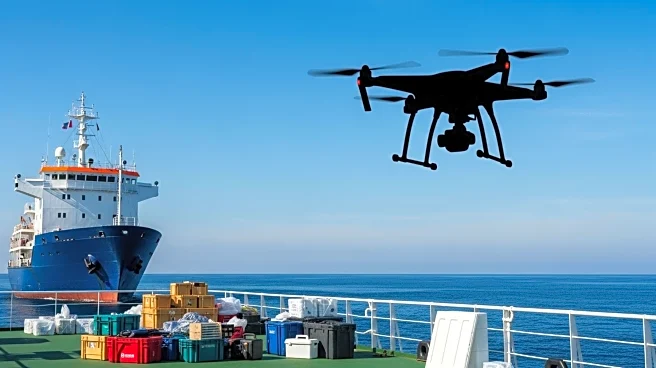What's Happening?
The Global Sumud Flotilla, a convoy of fifty boats carrying pro-Palestinian activists and humanitarian aid, has reported drone attacks while operating in international waters. The flotilla aims to deliver baby formula, medicine, and food to Gaza, challenging Israel's naval blockade. According to Francesca Albanese, a flotilla spokeswoman, the boats were attacked with sound bombs, explosive flares, and sprayed with suspected chemicals. The flotilla has faced previous interdictions by the Israeli Navy, and Israel claims that Hamas has infiltrated the group, urging the boats to dock at Ashqelon Marina for aid transfer to the UN.
Why It's Important?
The incident highlights ongoing tensions between Israel and pro-Palestinian activists attempting to breach the naval blockade of Gaza. The blockade has significant humanitarian implications, affecting the delivery of essential supplies to Gaza's population. The flotilla's mission underscores the international community's efforts to address humanitarian needs in Gaza, while Israel's security concerns about potential Hamas involvement complicate the situation. The attacks could deter future humanitarian missions and exacerbate geopolitical tensions in the region.
What's Next?
The flotilla organizers plan to continue their mission despite the attacks, while Israel maintains its stance on security concerns. The situation may lead to increased diplomatic efforts to resolve the blockade issue and ensure safe passage for humanitarian aid. International reactions and potential interventions by global organizations could influence future developments.
Beyond the Headlines
The drone attacks raise ethical questions about the use of military technology against humanitarian missions. The incident may prompt discussions on international maritime law and the rights of activist groups operating in international waters. Long-term implications could include shifts in international policy regarding humanitarian aid delivery in conflict zones.










